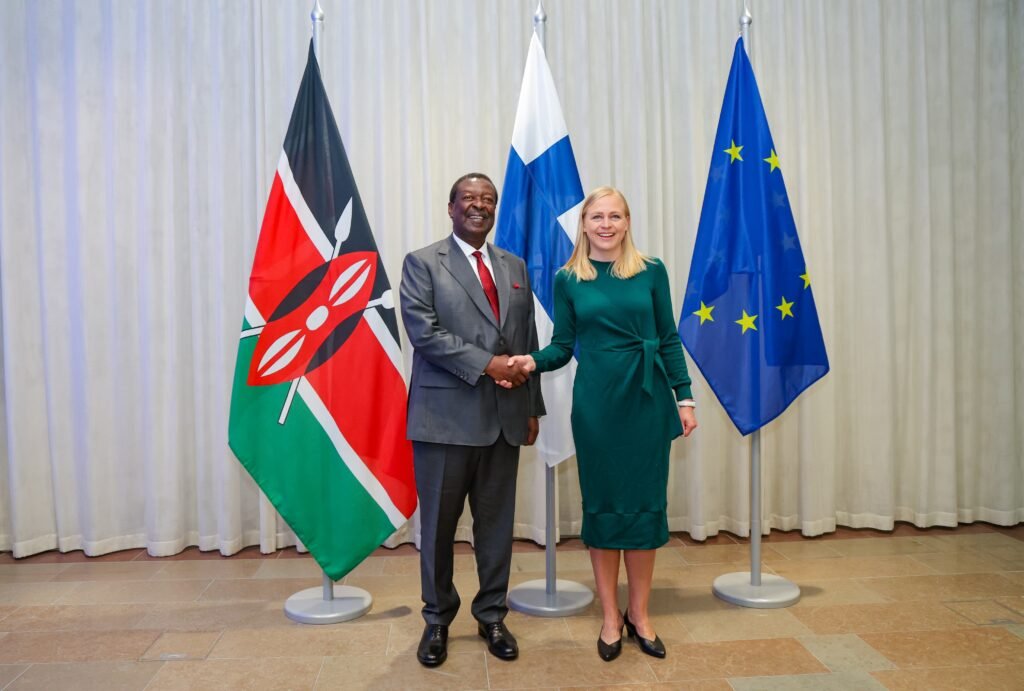Kenya and Finland have reaffirmed their commitment to strengthening bilateral ties, marking a significant step in fostering mutual cooperation across key areas of development.
During the 13th Kultaranta Talks in Naantali, Finland, Mr Musalia Mudavadi, Prime Cabinet Secretary and Cabinet Secretary for Foreign and Diaspora Affairs, engaged in high-level discussions with several governing leaders including Elina Valtonen, Finnish Foreign Minister, building on the momentum of President Alexander Stubb’s state visit to Kenya in May 2025.
The talks focused on the shared vision of both nations in advancing peace, sustainable development, and economic growth, with Finland pledging continued support in critical sectors such as health, renewable energy, and digital infrastructure through initiatives like the Finn fund.
During the high panel discussion with the other leaders dubbed “Accumulation of Shocks at the Global Level – What the West Should Understand,” Mr Musalia Mudavadi stressed on the unraveling of global cooperation, warning that the world is becoming increasingly divided as nations retreat into self-interest and unilateral action.
He also stated that unlike before when regional disruptions only affected a particular, they now have global implications. For instance, the conflicts experienced in Africa ended up affecting about 500 million people in the continent while the Russia-Ukraine conflict continues to greatly affect the world since its start in 2014.
This is why enhancing collaboration in conflict resolution was greatly emphasised at the talks. With geopolitical tensions and fragmented diplomacy on the rise, deeper collaboration could be the answer to avoid the risks associated.
As a result, Kenya seeked Finland’s backing for its proposed treaty on international mediation. This initiative aligns with Kenya’s growing role as a regional peace mediator.
Through a partnership with the European country, which has a strong tradition of neutral mediation, the current government stands to gain valuable expertise and diplomatic leverage in its efforts to stabilise conflict-prone regions, particularly in Africa, where instability increasingly reverberates across the globe.
Additionally, Kenya leveraged the platform to advocate for Finland’s endorsement of Nairobi as the host of the Global Plastics Treaty Secretariat, a move that would position the country at the forefront of global environmental governance.
With climate change posing an existential threat to vulnerable economies, Kenya’s push for this role highlights its commitment to sustainable development and green innovation.
Finland’s support could prove instrumental in securing Nairobi’s bid, further cementing the country’s reputation as a leader in climate action and environmental diplomacy.
Mr Mudavadi also insisted that Africa needs a place at the global table, increasing the calls for Africa’s rightful place in global institutions, particularly the UN Security Council. His assertion that “the future is African” highlights the continent’s demographic and economic potential, reinforcing the need for equitable representation in decision-making forums.


